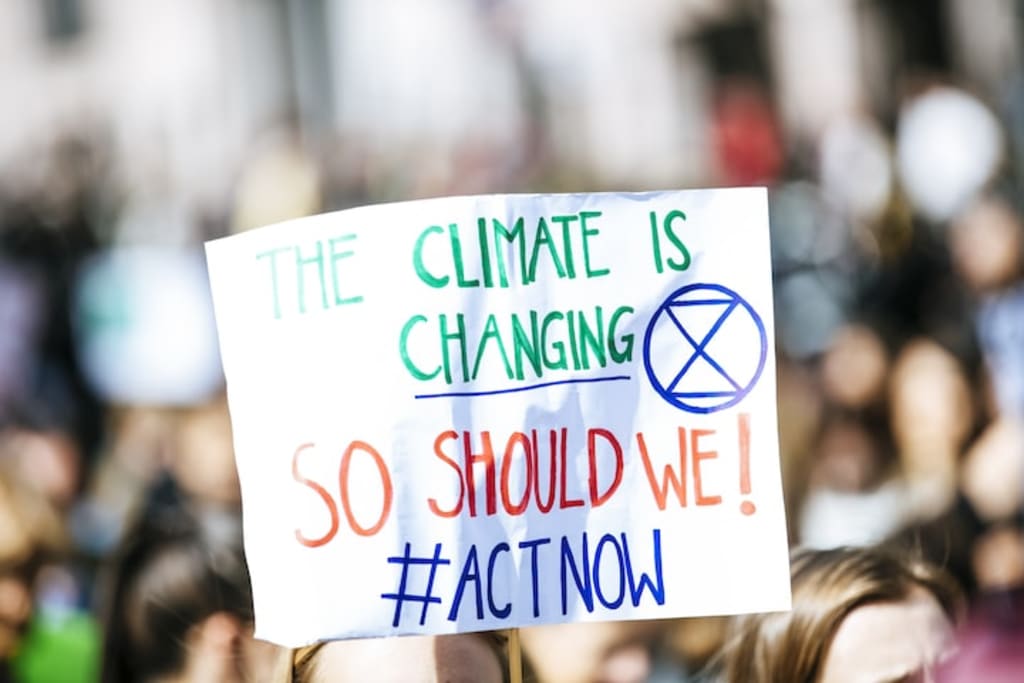Climate Change and Human Health
Understanding the Impacts and Promoting Resilience

Introduction:
Climate change is an urgent global issue that demands our immediate attention. The Earth's climate is undergoing rapid shifts, and these changes have profound implications for human health. In this article, we will delve into the multifaceted ways in which climate change affects our well-being. By exploring the risks of heat-related illnesses, the spread of vector-borne diseases, and the mental health implications, we can better understand the urgent need for adaptation and mitigation strategies. Join us as we explore practical tips and recommendations for building resilience in the face of these challenges and taking action for a sustainable future.
1. Heat-Related Illnesses: The Growing Threat
As global temperatures rise, heat-related illnesses pose an increasing risk to vulnerable populations. Heatwaves and extreme heat events have become more frequent and intense, leading to heat exhaustion, heat stroke, and dehydration. These conditions, particularly affect the elderly, children, and individuals with pre-existing health conditions. Understanding the physiological effects of extreme heat on the body is crucial. It is essential to implement heat wave preparedness measures, such as staying hydrated, seeking cool shelter, utilizing cooling technologies, and recognizing the warning signs of heat-related illnesses. Public awareness campaigns and community support systems play a vital role in reducing the health risks associated with rising temperatures.
2. Vector-Borne Diseases: Expanding Threats
Climate change has far-reaching consequences for the spread of vector-borne diseases. Shifting temperature and precipitation patterns create more favorable conditions for disease-carrying vectors like mosquitoes and ticks. As a result, the geographic range of these vectors expands, leading to increased transmission of diseases such as malaria, dengue fever, Zika virus, and Lyme disease. To combat this threat, comprehensive vector control measures are necessary. This includes habitat management, insecticide use, and personal protection strategies such as wearing protective clothing and using repellents. Additionally, community engagement, education, and surveillance efforts are crucial in preventing and mitigating the impact of vector-borne diseases in a changing climate.
3. Mental Health Implications: Nurturing Resilience
Climate change not only affects our physical health, but also has profound mental health implications. Rising temperatures, extreme weather events, and environmental degradation contribute to increased levels of anxiety, depression, and post-traumatic stress disorder (PTSD). Individuals and communities affected by climate change face the loss of livelihoods, displacement, and feelings of powerlessness, which further exacerbate mental health challenges. Recognizing the importance of addressing climate-related mental health concerns, it is essential to prioritize increased access to mental health support services. Building community resilience and promoting eco-anxiety awareness can empower individuals to cope with and adapt to the mental health impacts of climate change. Fostering hope, engagement, and collective action is key in supporting mental well-being and fostering climate resilience.
4. Adaptation and Mitigation Strategies: Pathways to Resilience
To protect human health from the adverse effects of climate change, proactive adaptation and mitigation strategies are necessary. Building heat-resilient infrastructure is crucial to withstand extreme temperatures. Implementing early warning systems for extreme weather events can help communities prepare and respond effectively. Enhancing urban planning to promote cool green spaces can provide relief during heatwaves. Additionally, investing in sustainable healthcare practices, such as utilizing renewable energy in medical facilities and promoting telehealth services, can reduce greenhouse gas emissions and improve healthcare resilience. Policymakers have a critical role to play in implementing climate change mitigation measures. This includes transitioning to clean energy sources, supporting sustainable agriculture practices, and promoting low-carbon transportation. On an individual level, embracing energy efficiency, reducing carbon footprints, and supporting sustainable lifestyle choices contributes to the collective effort in addressing climate change and protecting human health.
Conclusion
Climate change poses significant risks to human health, demanding urgent action. By recognizing the growing threats of heat-related illnesses, vector-borne diseases, and mental health implications, we can empower individuals, communities, and policymakers to adopt adaptation and mitigation strategies. Together, we can foster resilience and create a sustainable future for generations to come. Let us act now to protect our health, our planet, and the well-being of future generations. The time to act is now.
About the Creator
Baren Balance
Welcome! I'm Baren Balance, providing insights on nature, science, and thought-provoking topics. Join me on this journey of discovery and positive change. Let's explore, learn, and unlock our potential together!






Comments
There are no comments for this story
Be the first to respond and start the conversation.